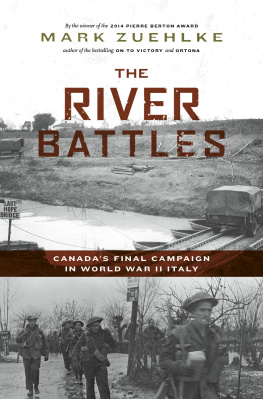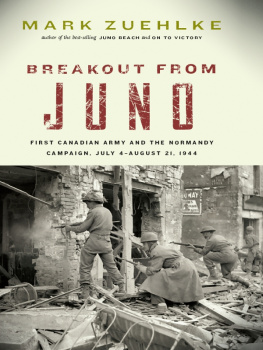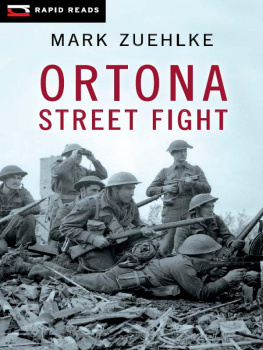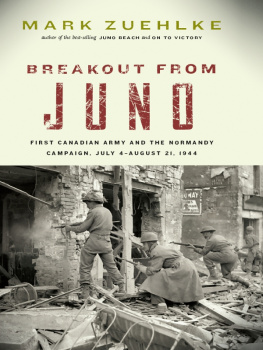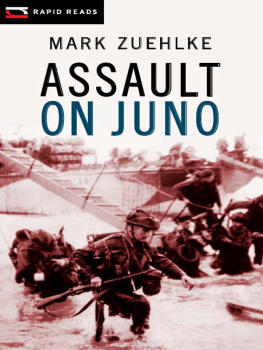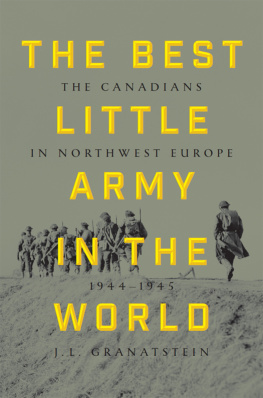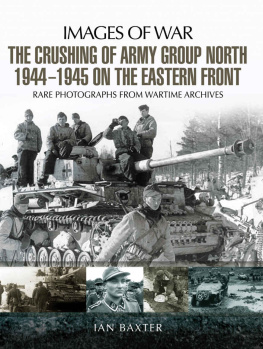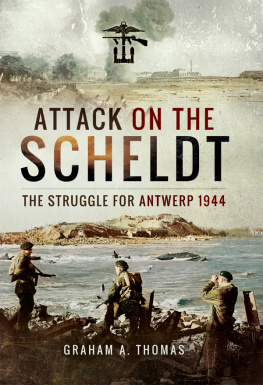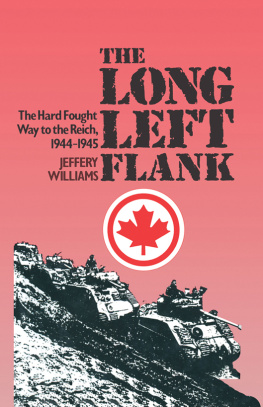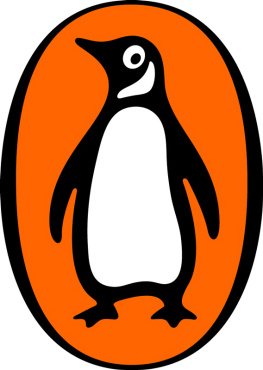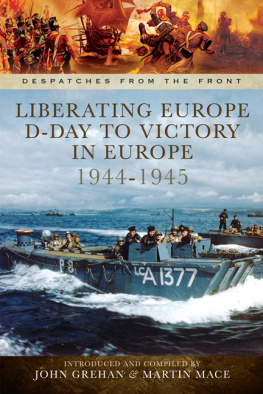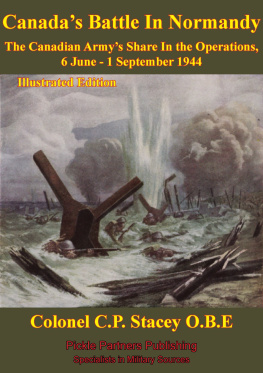TERRIBLE VICTORY
TERRIBLE
VICTORY
FIRST CANADIAN ARMY AND THE
SCHELDT ESTUARY CAMPAIGN:
SEPTEMBER 13NOVEMBER 6, 1944
MARK ZUEHLKE

Copyright 2007 by Mark Zuehlke
First paperback edition 2008
08 09 10 11 12 5 4 3 2 1
All rights reserved. No part of this book may be reproduced, stored in a
retrieval system or transmitted, in any form or by any means, without
the prior written consent of the publisher or a licence from The Canadian
Copyright Licensing Agency (Access Copyright). For a copyright licence,
visit www.accesscopyright.ca or call toll free to 1-800-893-5777.
Douglas & McIntyre Ltd.
2323 Quebec Street, Suite 201
Vancouver, British Columbia
Canada V5T 4S7
www.douglas-mcintyre.com
Library and Archives Canada Cataloguing in Publication
Zuehlke, Mark
Terrible victory : First Canadian Army and the Scheldt Estuary campaign,
Sept. 13Nov. 6, 1944 / by Mark Zuehlke.
Includes bibliographical references and index.
ISBN 978-1-55365-227-4 (cloth) 978-1-55365-404-9 (paper)
1. Scheldt River Estuary, Battle of, 1944.
2. Canada. Canadian ArmyHistoryWorld War, 1939-1945.
3. World War, 19391945CampaignsNetherlands.
4. World War, 1939-1945CampaignsBelgium. I. Title
D756.5.S34Z84 2007 940.5421 C2007-901955-2
Editing by Elizabeth McLean
Jacket design by Naomi MacDougall & Peter Cocking
Interior design by Peter Cocking
Jacket photographs: top: photographer unknown, LAC E004665470
bottom: Daniel Guravich, LAC PA-138284
Maps by C. Stuart Daniel/Starshell Maps
Printed and bound in Canada by Friesens
Printed on forest-friendly paper
We gratefully acknowledge the financial support of the Canada
Council for the Arts, the British Columbia Arts Council, the Province
of British Columbia through the Book Publishing Tax Credit,
and the Government of Canada through the Book Publishing Industry
Development Program (BPIDP) for our publishing activities.
OTHER MILITARY HISTORY BY MARK ZUEHLKE
Holding Juno: Canadas Heroic Defence of the
D-Day Beaches: June 712, 1944
Juno Beach: Canadas D-Day Victory: June 6, 1944
The Gothic Line: Canadas Month of Hell in World War II Italy
The Liri Valley: Canadas World War II Breakthrough to Rome
Ortona: Canadas Epic World War II Battle
The Canadian Military Atlas: Four Centuries of Conflict from
New France to Kosovo (with C. Stuart Daniel)
The Gallant Cause: Canadians in the
Spanish Civil War, 19361939
For Honours Sake: The War of 1812
and the Brokering of an Uneasy Peace
* Available from Douglas & McIntyre
War is a crime. Ask the infantry, ask the dead.
ERNEST HEMINGWAY
To most soldiers who fought from the beaches through to Germany,
the fighting in the Scheldt was the worst and most ferocious.
CAPTAIN E.C. LUXTON, REGINA RIFLES
That Scheldt was hell on earth.
LIEUTENANT BILL HAYWARD,
NORTH SHORE (NEW BRUNSW ICK) REGIMENT
PREFACE
AFTER COMPLETING the two-volume seriesJuno Beach and Holding Juno, which detailed the opening seven days of the invasion of Normandy, I paused to consider what part of Canadas World War II military experience should come next. Certainly, my resolve to continue this work was strong, and there remained many significant battles fought by the Canadian Army to write about. During conversations with Major Michael Boire and others who have helped me immensely over the years since I embarked on a road that has now yielded six books on the war, I broached the idea of a book on First Canadian Armys battle to open the Scheldt estuary in the late summer and early fall of 1944. Little glory in that one, Michael opined. And damned complicated and hard to tell, he cautioned.
Preliminary research confirmed his opinion, but it also left me determined to tell the story. Initially, I worried that perhaps this battle had already been extensively covered, butas had been true with Canadas role in D-Day, this proved not the case. There was Denis and Shelagh Whitakers Tug of War, but, as Denis Whitaker was the commander of the Royal Hamilton Light Infantry, it concentrated mostly on operations of 2nd Canadian Infantry Division north of Antwerp. Then there were several books about Canadas role in Allied operations in northwest Europe that hustled through the Scheldt in a chapter or two. Even C.P. Staceys official history, The Victory Campaign, treated the Scheldt campaign curiouslygiving the events of September scant coverage, and rushing through 4th Canadian Armoured Divisions operations from mid-October to early November to the east of 2 CID in a few paragraphs. Undoubtedly, the motivation here was conservation of pages in what was necessarily a large volume.
But something else about Staceys treatment caught my eye. A Cinderella Operation, he called it, meaning that the Canadians had to do much with the leavings of supplies not allocated to other Allied armies. As the vital port of Antwerp remained closed to Allied shipping until the campaign was concluded, he seemed unduly apologetic about how long it took to finish the job. Stacey tends to undervalue the contribution of the army he was detailed to write about as its official historian, but regarding the Scheldt he seemed even more extreme.
Digging deep into the records, gathering veteran accounts, and conducting an extensive, detailed tour of the battleground itself, I came away with the opinion that First Canadian Armys conduct of the Battle of the Scheldt had, given the resources provided, been exemplary. I was also struck by the incredibly difficult conditions in which this battle was fought. Repeatedly, veterans referred to it as the worst fighting they saw in the war, and it was easy to see the truth of this.
Was there glory there? In todays world, the word rings as almost archaic. Curiously, I have never heard a veteran use the word. But they do unhesitatingly mention related terms, such as pride and honour. They honour their comrades, are proud of their regiment, and respect the role that Canada played in this titanic struggle for freedom. As has been the case with my past books, Terrible Victory is ultimately a tribute to the many thousands of youngoften painfully soCanadians who put their lives at risk in the service of their country. No one in this volunteer army had to go overseas.
In the style of my other books, the story is told by interlacing personal accounts of veterans with material drawn from official records, regimental histories, and many other sources. Hundreds of documents were consulted to ensure that the events are portrayed as accurately as possible. Often, of course, accounts of events from one source differ with those from another. And veteran memory sometimes conflicts with the official record. In such cases, I have consulted as many sources as possible in an attempt to arrive at a reasonable conclusion as to where the truth likely lies.
A WORD ABOUT spelling of place names is in order. Anyone who has travelled in Flemish Belgium will have encountered the problem. You drive towards a village marked on the map as, say, St. Leonard. But you never find it. Instead, you realize the village just passed, identified by signs as Sint-Lenaarts, was the place you sought. The maps Canadians used in World War II Belgium were based on Belgian Army maps, which translated Flemish place names into French ones. Out of respect to the Flemish, who suffered heavily in the fighting to open Antwerp, I have used the Flemish spellingsexcept for the commonly Anglicized place names of Antwerp (Antwerpen) and Ghent (Gent). Where the Belgian border meets the Netherlands, another difficulty arises, for the two nationalities often disagree on the spelling of places close by. In these cases, I have used the Flemish spelling when in Belgium and Dutch when in the Netherlands. British readers will particularly note that the city of Vlissingen on Walcheren Island is not referred to as Flushinghabitually the case in British works.
Next page

